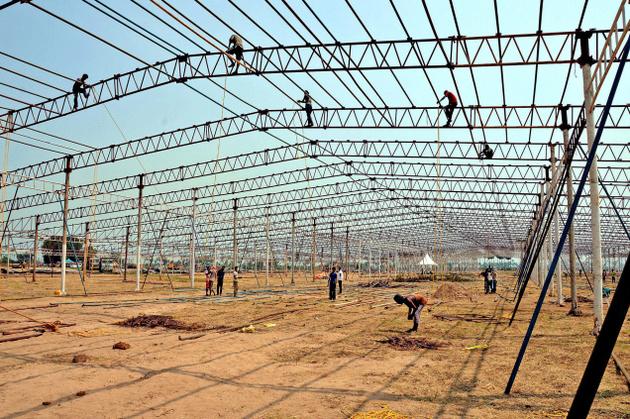
Like several other villages of Thullur mandal, the history of the village dates back to the reign of Vijayanagara emperor Sri Krishnadevaraya.
This sleepy village was little known to outsiders till the government decided to construct the capital city here. It also received an honourable distinction when the government decided to lay the foundation stone for Amaravati here.
Like several other villages of Thullur mandal, the history of the village dates back to the reign of Vijayanagara emperor Sri Krishnadevaraya. According to legend, Sri Krishnadevarya halted at Thullur on his way to invade Kondapalli Khilla in Krishna district as river Krishna was flowing furiously. His army commander Uddandarayudu also halted here. The village got its name after the emperor’s commander.
Prof. Yarlagadda Balagangadhara Rao, in his book Navyandhra Rajadhani Prantha Gramala Charitra, argues that king Kotaketaraju of the Dhurjaya dynasty and ruler of Dharanikota built the village in memory of his father Uddandarayudu. The term ‘Uddanda’ means capable or robust.
Located on the banks of the Krishna, the village has certain unique features. It has the most fertile land and saline-free groundwater. B. Venkateswara Rao, a resident, says the groundwater in neighbouring villages is not as pure as the water available in Uddandarayunipalem. Moreover, the yield from agricultural fields in the village is quite high compared to the neighbouring villages.
Residents recall that the government had constructed a karakatta in 1950 following an agitation. The government began providing power supply in 1964 from Tadepalli. An acre used to cost Rs. 50,000 in 1990. It touched Rs. 9 lakh in 2006. Now an acre costs Rs. 2.30 crore.
Interestingly, the foundation stone for Amaravati will be laid in the field that once belonged to Jujala Chalapati Rao, a B. Tech graduate-turned farmer.
source: http://www.thehindu.com / The Hindu / Home> Nation> Andhra Pradesh / by G.V.R. Subba Rao / Uddandarayunipalem (Guntur Dt.) / October 15th, 2015
